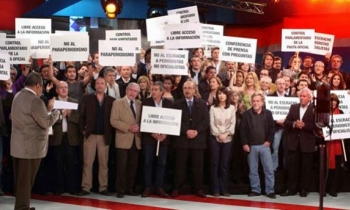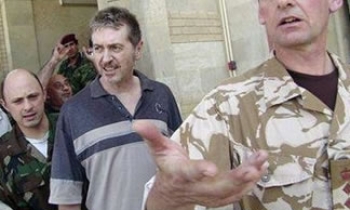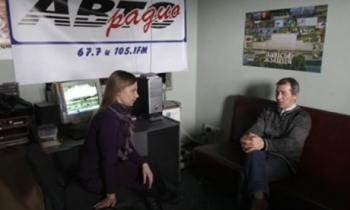COPENHAGEN, Denmark - The fury over caricatures of the Prophet Muhammad published in European papers has exposed the widening cultural divide in Europe, where many Muslims are torn between their faith and the Western values of the countries they live in.
The drawings, including one of the prophet wearing a turban in the form of a bomb, offended Muslims around the world and set off angry protests Friday from London to Asia and in the Arab world.
The Bush administration on Friday offered the protesters support, saying of the drawings, ``We find them offensive, and we certainly understand why Muslims would find these images offensive.''
The caricatures were first published by a Danish newspaper in September. Liberal-minded European editors, intent on making a point about freedom of speech, reprinted the drawings this week.
Outrage over caricatures erupted in a swell of protests across the Muslim world Friday, with demonstrators demanding revenge against Denmark and death for those they accuse of defaming Islam's holiest figure.
Protests were held Friday in Britain, Turkey, Lebanon, Syria, Pakistan, Indonesia, Malaysia and Palestinian areas.
Clerics in Palestinian areas called in Friday prayers for a boycott of Danish and European goods and the severing of diplomatic ties. Tens of thousands of incensed Muslims marched through Palestinian cities, burning the Danish flag and calling for vengeance.
The State Department press officer Sean McCormack, reading the government's statement on the controversy, said, ``Anti-Muslim images are as unacceptable as anti-Semitic images,'' which are routinely published in the Arab press, ``as anti-Christian images, or any other religious belief.''
Still, the United States defended the right of the newspapers to publish the cartoons. ``We vigorously defend the right of individuals to express points of view,'' McCormack added.
British Foreign Minister Jack Straw told reporters that newspapers in Germany, Italy, Spain, France and other countries that published the cartoons in a show of freedom of press solidarity acted irresponsibly.
In France, where rioting broke out last year among its sizable Muslim population, President Jacques Chirac released a statement Friday defending free speech but also appealing ``to all to show the greatest spirit of responsibility, of respect and of good measure to avoid anything that could hurt other people's beliefs.''
Summing up the cultural rift between Islam and the West, imam Ahmed Abu Laban told worshipers at Friday prayers in a Copenhagen mosque: ``In the West, freedom of speech is sacred; to us, the prophet is sacred.''
The Islamic reaction in Europe has been relatively muted compared to scenes of rage among Palestinians and in countries such as Pakistan, Indonesia and Saudi Arabia.
But many here wonder how long the calm can last. There is concern the controversy could further stoke cultural tensions between Europeans and the Muslim minority in their midst, already aggravated by last summer's bombings in London and last fall's riots in France.
Islamic law forbids depictions of the Prophet Muhammad and other major religious figures -- even positive ones -- to prevent idolatry, and fundamentalist Muslim groups have been expressing outrage since the drawings were first published by the Danish paper Jyllands-Posten.
For many of Europe's Muslims, the controversy is a double blow -- to their religious devotion and to their civil beliefs.
``Muslims in Norway feel violated twice in this case -- first through the caricatures and then by the Norwegian flag being burned,'' Norway's Islamic Council said.
In Washington, D.C., officials of the national group Council on American-Islamic Relations, which has a Bay Area chapter, met Friday with the Norwegian ambassador.
``The feeling behind all this is it's a lack of respect,'' said Safaa Ibrahim, executive director of CAIR in Santa Clara. ``It's an insult.''
Imams at mosques across the Bay Area addressed the issue during worship Friday afternoon, asking congregants to ``respond in the spirit of Islam,'' said Samina Faheem-Sundas, executive director of the American Muslim Voice, a Newark-based non-profit, educational group.
Faheem-Sundas was critical not just of the Danish newspaper that first published the caricatures last year, but also of the Mercury News, for running the story about the furor that resulted, and a photo of one of the caricatures.
Ibrahim said CAIR will step-up its local education campaign about Islam and Muslims, similar to interfaith community dialogues it held last year when it distributed copies of the Koran, Islam's holy book.
Mercury News Staff Writer Jessie Mangaliman contributed to this report; the New York Times, the Associated Press and the Los Angeles Times also contributed to this report.









